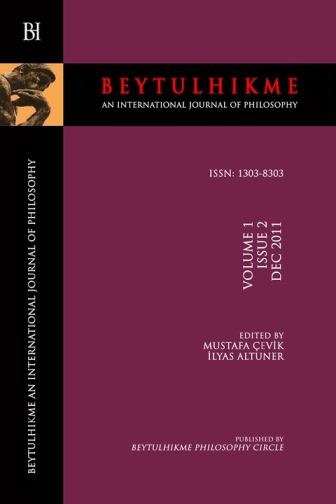Author :
Abstract
Bu makalede, Tanrı-âlem ilişkisi bağlamında ortaya çıkan ve âlemin varlık kazanmasının zamansallıkla olan irtibatını konu edinen hudûs kavramı, İbn Sînâ açısından ele alınmıştır. İbn Sînâ, ontolojisinde yer alan ay-üstü ve ay-altı âlem tasnifiyle irtibatlı olarak iki tür hudûsa yer verir. Ay-üstü âlemde yer alan akıllar, nefis ve cisimleriyle birlikte felekler, göksel hareket ve bu hareketle varlık kazanan zaman, zâtî hudûsun konusudur. Zâtî hudûsa konu olan varlıklar, zamansal anlamda ezelîdir. Onların nihai anlamda varlık nedeni olan Tanrı ile aralarında zaman yoktur. Ay-altı âlemi oluşturan ve mevcudiyet kazanmasında maddenin aracılık ettiği oluş-bozuluşa konu cisimler, bu cisimlerin muhtelif hareketleri ve bu hareketlerin oluşturduğu zaman ise zamansal hudûsun konusu oluşturur.<
Keywords
Abstract
In this article, I shall deal with the concept of huduth (origination) as contextualized by Avicenna, which emerges in the context of relation between God and the world, while relating the coming into existence of the world with temporality. Avicenna discusses that there are two kinds of origination according to his classification of the celestial and sublunary world in ontology. Rational beings, celestial souls and bodies, heavenly motion and time depend on this motion are known as essential coming into existence (huduth dhati). These things are eternal from the point of view of temporality. There is no time difference between them and God who is the ultimate cause of them. The sublunary world consists of matter and bodies of generation and corruption. The various movements of these bodies and the time that depends on the movements are of the topic: temporal coming into existence (huduth zamani).<





